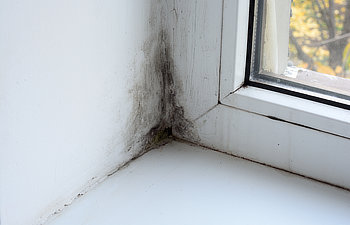Health Dangers of Mold Growth in Your Home
1. Allergic Reactions
Mold spores can trigger allergic reactions in sensitive individuals, including sneezing, coughing, itchy eyes, runny nose, and skin irritation. People with allergies or asthma may experience heightened symptoms when exposed to mold, leading to discomfort and reduced quality of life.
2. Respiratory Issues
Prolonged exposure to mold can exacerbate respiratory conditions such as asthma and bronchitis, as well as cause respiratory infections in otherwise healthy individuals. Mold spores can irritate the respiratory tract, leading to coughing, wheezing, shortness of breath, and chest tightness. In severe cases, mold exposure can contribute to the development of chronic respiratory conditions.
3. Sinus Infections
Mold exposure can increase the risk of sinus infections, also known as sinusitis. Mold spores can irritate the nasal passages and sinuses, leading to inflammation, congestion and sinus pressure. Individuals with chronic sinusitis may experience recurrent infections and persistent symptoms that affect their daily functioning.
4. Skin Irritation
Direct contact with mold or mold-infested materials can cause skin irritation and allergic reactions. Mold spores can trigger rashes, itching, redness and other dermatological symptoms in sensitive individuals. Prolonged exposure to mold-contaminated surfaces may exacerbate existing skin conditions or lead to the development of new ones.
5. Neurological Symptoms
Some studies suggest a potential link between mold exposure and neurological symptoms such as headaches, dizziness, memory loss and cognitive impairment. Mold toxins, known as mycotoxins, may affect the central nervous system and contribute to neurological dysfunction in susceptible individuals.
6. Respiratory Infections
Mold exposure can increase the risk of respiratory infections, including fungal pneumonia and bronchopulmonary aspergillosis. Mold spores can colonize the respiratory tract and lungs, leading to inflammation, infection and respiratory distress. Individuals with compromised immune systems or underlying respiratory conditions are particularly vulnerable to mold-related infections.
7. Toxic Effects
Certain types of mold, such as black mold (Stachybotrys chartarum), produce mycotoxins that can have toxic effects on the body. Prolonged exposure to mycotoxins can lead to a range of health problems, including liver damage, kidney dysfunction, immune suppression and neurological disorders. While rare, toxic mold exposure can have serious and potentially life-threatening consequences.
Mold growth in your home can have serious health consequences for you and your family. From allergic reactions and respiratory issues to neurological symptoms and toxic effects, mold exposure can affect individuals of all ages and health statuses. To protect your health and well-being, it is essential to address mold growth promptly, identify the source of moisture, and take steps to prevent future mold infestations. If you suspect mold growth in your home, consult our team at Going Green Restoration. Call our mold remediation specialists to assess the situation and implement effective solutions to mitigate the health risks associated with mold exposure at your home in the Orlando, FL, area.

